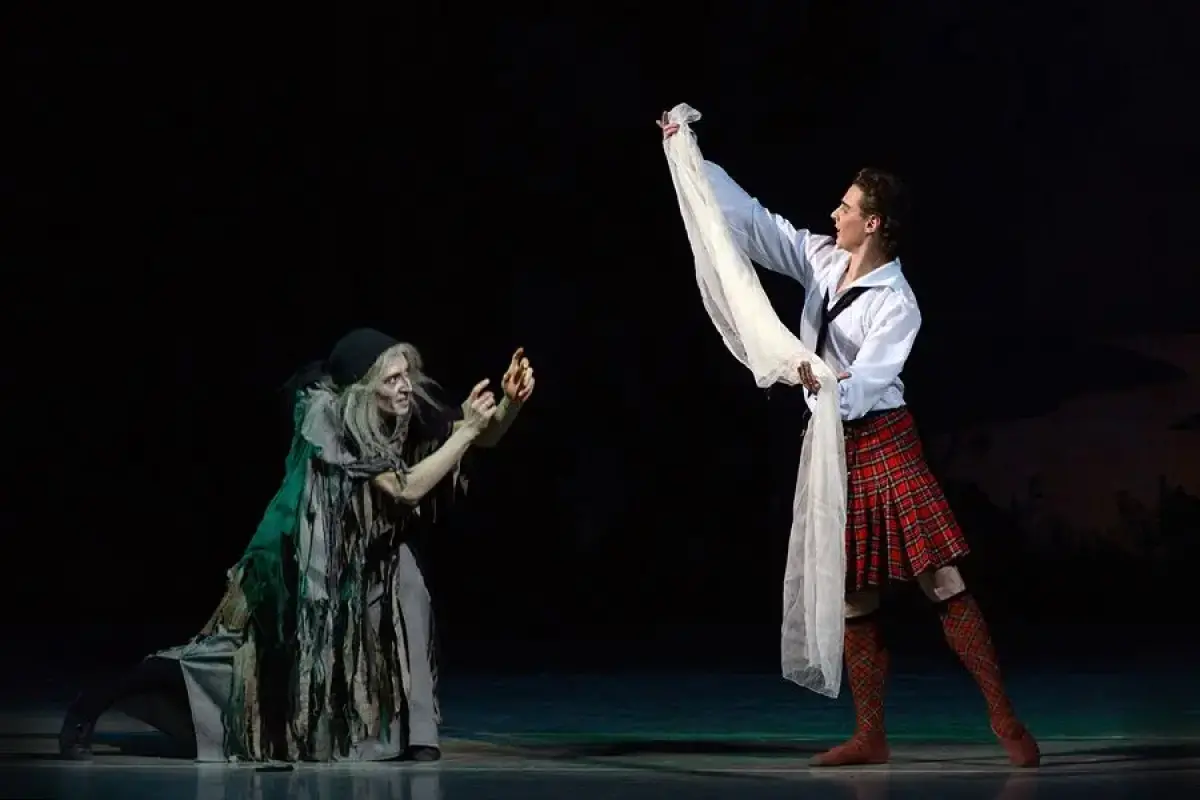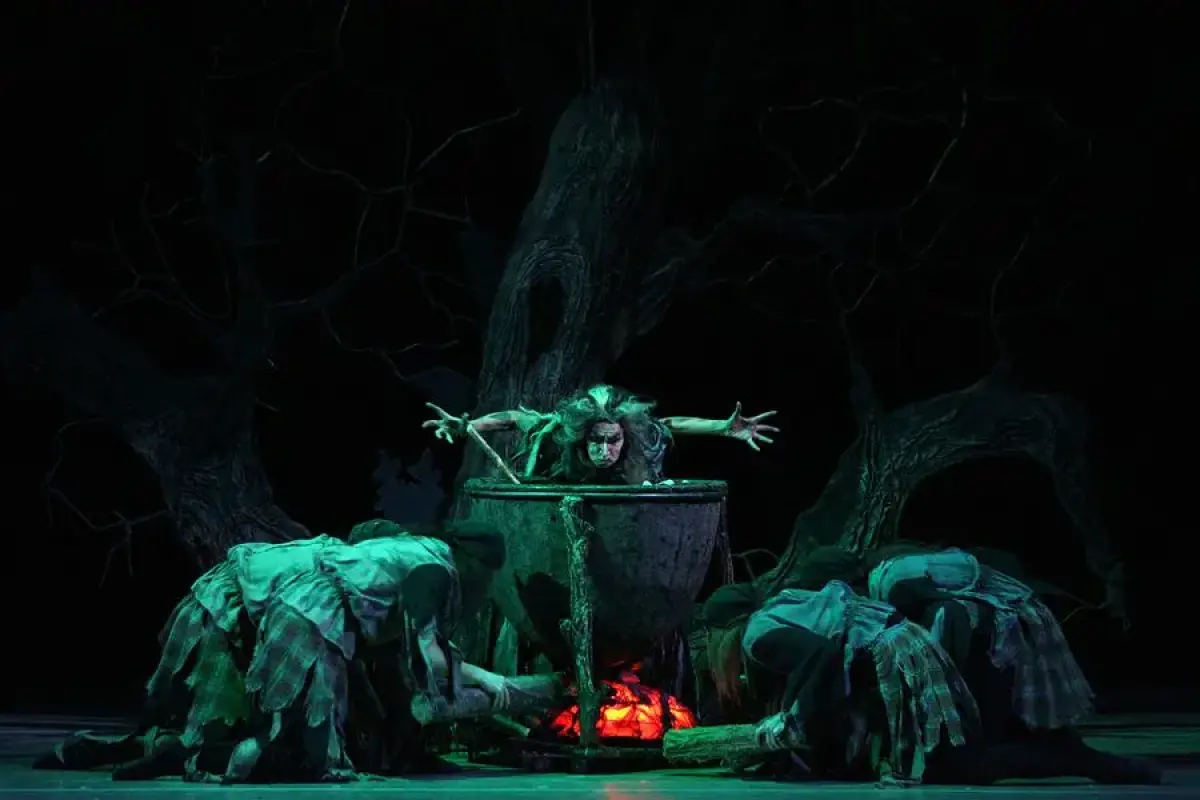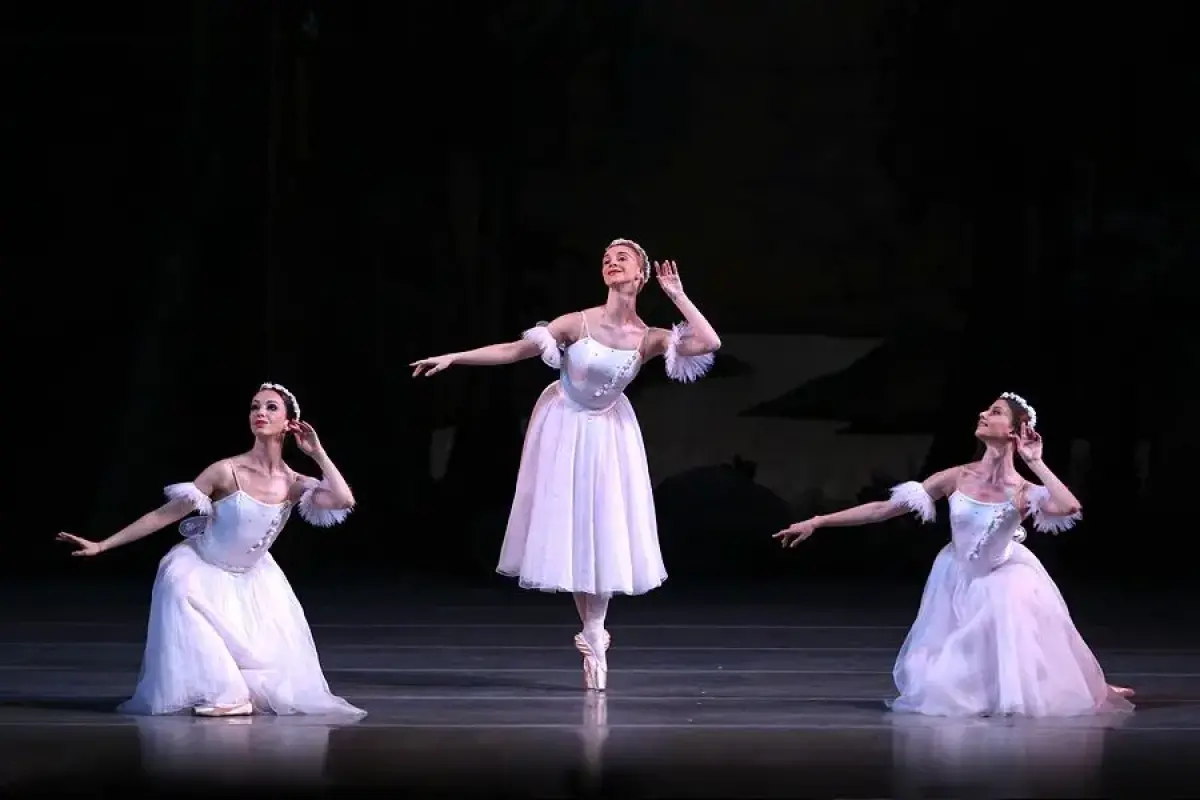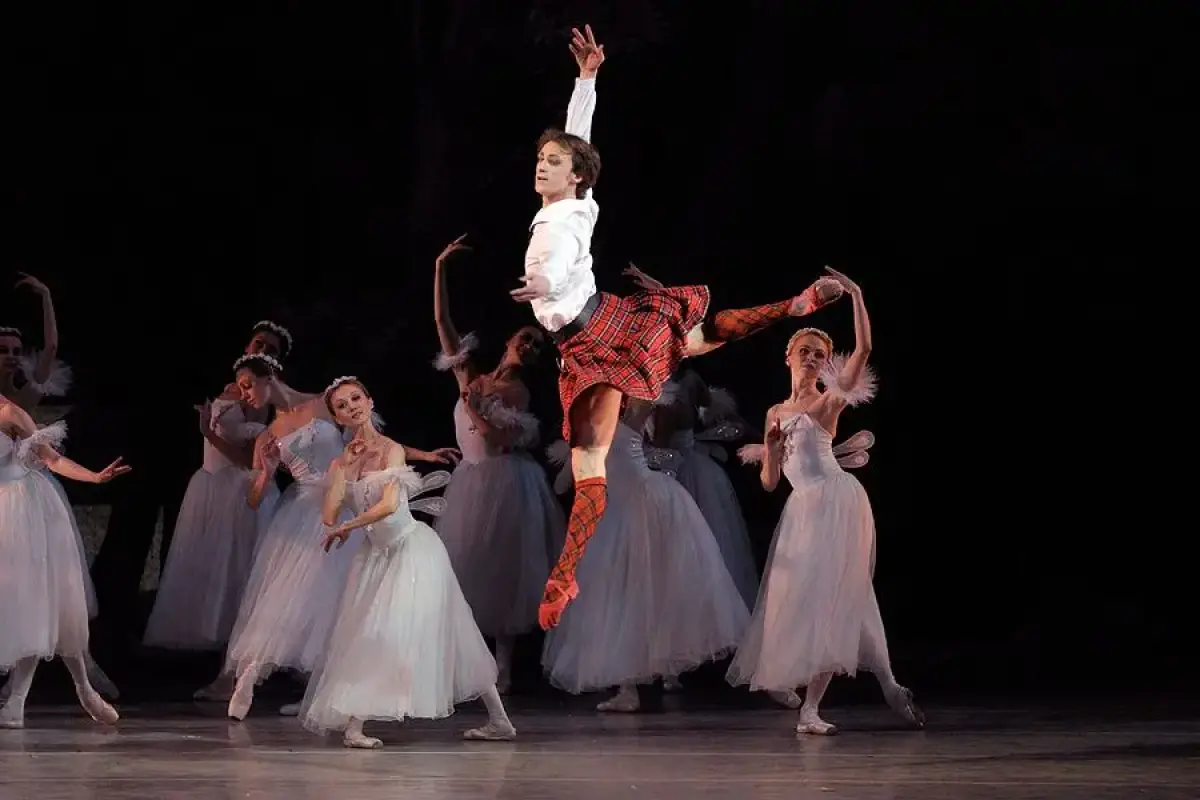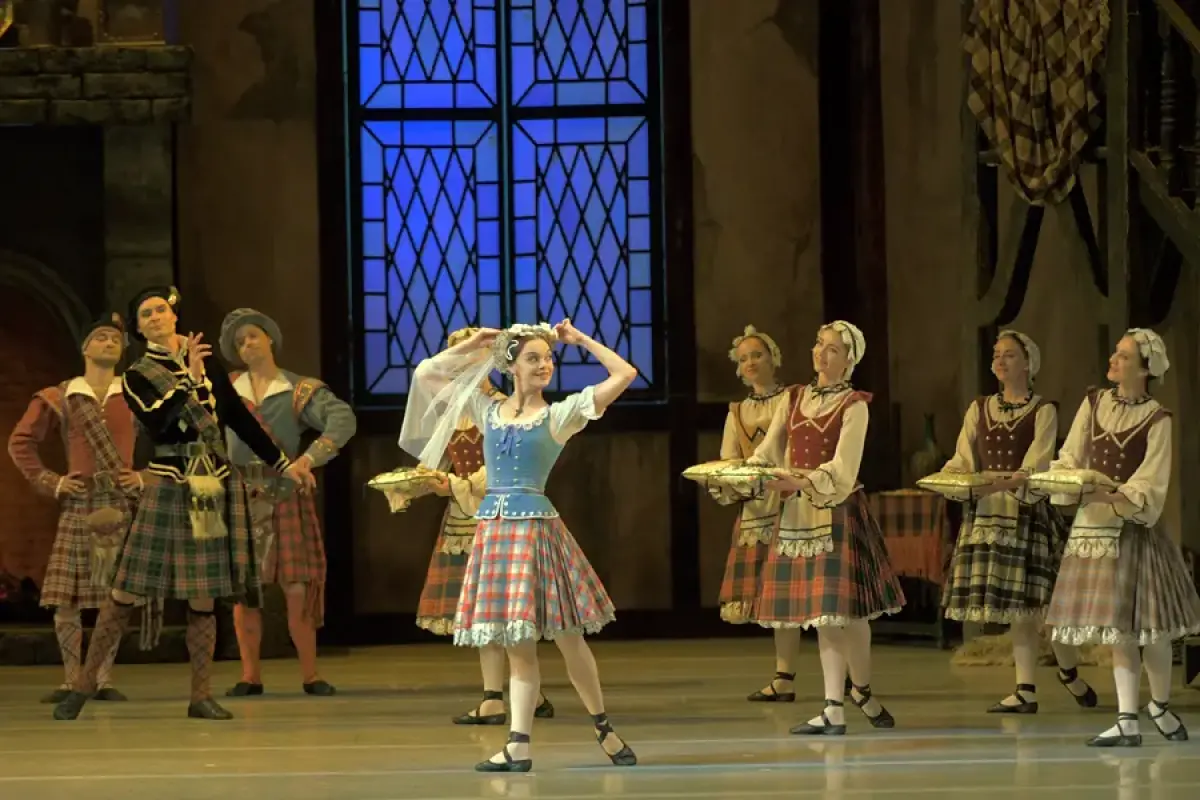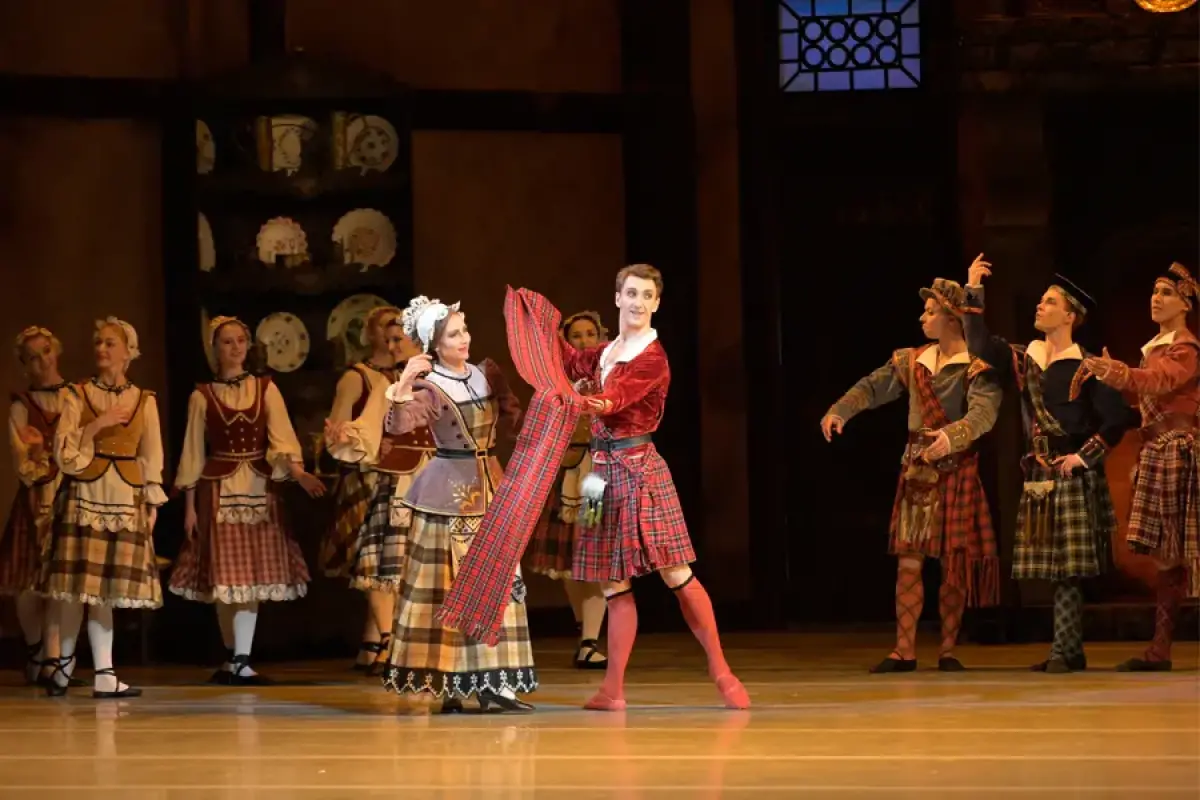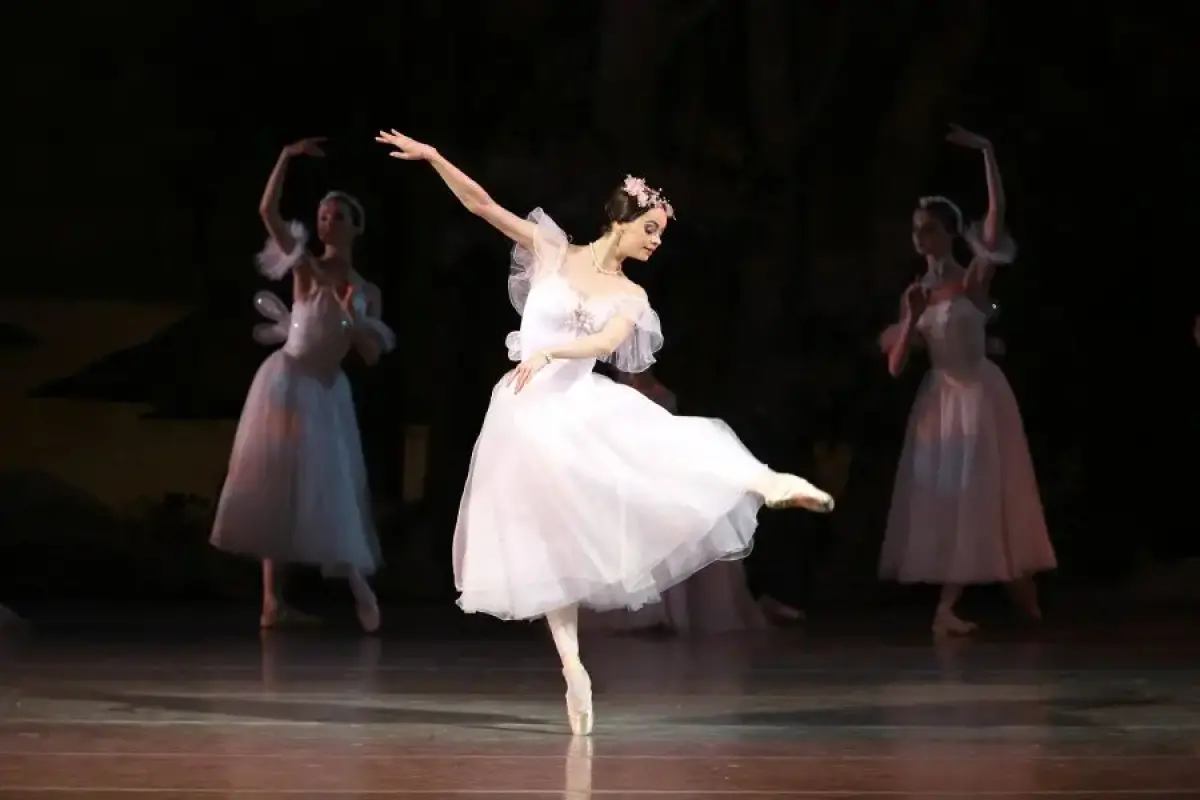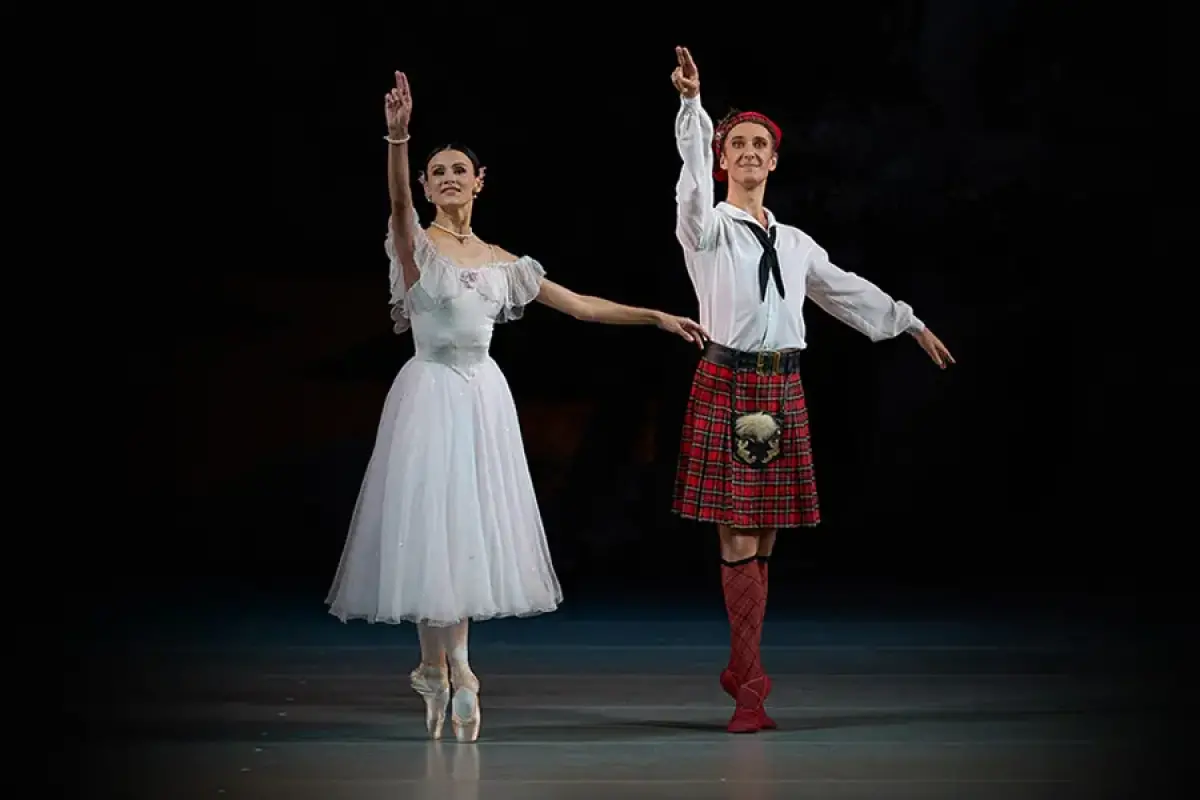
6+
Балет «Сильфида»/ «La Sylphide»
Описание:
Балет в двух действиях
Манифест балетного романтизма, «Сильфида» была создана в 1832 году хореографом Филиппом Тальони для его дочери, Марии Тальони, и стала одним из главных спектаклей ее жизни, открывшим ей путь к признанию, сделавшим ее имя легендарным. В этом балете она впервые поднялась на пуанты не ради удивления публики, а во имя художественной идеи: едва касаясь сцены кончиками пальцев, она создавала образ девы воздуха, зовущей прочь от земли, от прозы быта.
Легкая, утонченная Тальони, словно преодолевая силу земного притяжения, своим танцем воплощала мир грез. Воздушность ее танца подчеркивал и костюм: летящий газовый тюник создавал ощущение невесомости, а белый цвет открытого платья подчеркивал свободу от земных страстей. Танец населявших фантастический мир небесных подруг Сильфиды был начисто лишен бытовых примет. Тогда как танцевальные характеристики персонажей реального мира – шотландских крестьян, одетых в яркие национальные костюмы – строились на основе народной хореографии.
Манящему, прекрасному миру мечты, воспетому классическим танцем сильфид, хореограф противопоставлял и мрачный гротеск сцены шабаша нечисти: вокруг кипящего котла плясали ведьмы, вампиры, козлоногие карлики, гномы и джины. Из этого котла колдунья Мэдж извлекала роковой шарф – она была призвана разбить мечту романтического героя, устремившегося за прекрасным видением. По законам романтизма идеал недостижим: едва герой, пожелав остановить мгновение и обладать неуловимым, накидывал на плечи Сильфиды шарф, она умирала.
Вдохновленные успехом первой «Сильфиды», многие хореографы создавали свои версии этого романтического балета. Младший современник Тальони, датский хореограф Август Бурнонвиль у себя на родине поставил свою «Сильфиду», варьировавшую тот же сюжет, повторявшую отдельные сцены шедевра Тальони, но сочиненную на другую партитуру – Хермана Левенскьольда (тогда как Сильфида Тальони танцевала на музыку Жана Шнейхоффера). Датчане сохранили тот спектакль, и именно он лег в основу постановки «Сильфиды» в Мариинском театре. Ольга Макарова
Спектакль идет с одним антрактом.
Ballet in two acts Age category 6+
Music by Herman von Lovenskjøld Libretto by Adolphe Nourrit Choreography by August Bournonville, revised version by Elsa-Marianne von Rosen Set design by Vyacheslav Okunev Costume design by Irina Press
World premiere: 28 November 1836, Royal Danish Ballet, Copenhagen Premiere at the Kirov Theatre of Opera and Ballet (Mariinsky): 1 December 1981, Leningrad
A manifesto of romanticism in ballet, La Sylphide was created in 1832 by the choreographer Filippo Taglioni for his daughter Marie Taglioni, and it was to become one of the most important productions in her life, opening the doors to fame and making her name legendary. It was in this ballet that she first appeared en pointe not to amaze the audience but for the sake of an artistic ideal: barely touching the stage on tiptoe, she created the image of a maiden of the air, calling us away from the earth, from the prose of everyday life. The light and refined Taglioni, literally defying gravity, embodied the world of reverie with her dance. The ethereal quality of her dance was underscored by her costume: the floating gauze tunic created the impression of weightlessness, and the white colour of the open skirts indicated freedom from worldly passions. The dance of the Sylph’s heavenly friends who inhabit the fantastical world around her was totally divested of everyday items. At the same time, the dance characteristics of the people from the real world – Scots peasants dressed in striking national costume – were constructed along the lines of folk dance.
The choreographer contrasted the alluring and beautiful world of dreams, so praised by the dance of the sylphs, with the gloomy grotesque of the scene of the coven of evil: around a boiling cauldron there are dancing witches, vampires, goat-footed dwarves, gnomes and genies. From this cauldron the witch Madge extracts a fateful scarf – it has been summoned to break the dream of the romantic hero striving towards a beautiful vision. According to the laws of romanticism, the ideal is unattainable: as soon as the hero, wishing to stop for a moment and catch the elusive, throws the scarf around the Sylph’s shoulders she is dead. Inspired by the success of the first La Sylphide, many choreographers have created their own versions of this romantic ballet. Taglioni’s younger contemporary, the Danish choreographer August Bournonville, staged his own version of La Sylphide in his native land, which included variations on the plot and repeated individual scenes from Taglioni’s masterpiece but which was created using a different score – by Herman von Løvenskiold (whereas Taglioni’s Sylph was danced to music by Jean Schneitzhöeffer). The Danish retained this version, and it was this that provided the basis for the production of La Sylphide at the Mariinsky Theatre. Olga Makarova
Running time: 1 hour 40 minutes. The performance has one interval.
Манифест балетного романтизма, «Сильфида» была создана в 1832 году хореографом Филиппом Тальони для его дочери, Марии Тальони, и стала одним из главных спектаклей ее жизни, открывшим ей путь к признанию, сделавшим ее имя легендарным. В этом балете она впервые поднялась на пуанты не ради удивления публики, а во имя художественной идеи: едва касаясь сцены кончиками пальцев, она создавала образ девы воздуха, зовущей прочь от земли, от прозы быта.
Легкая, утонченная Тальони, словно преодолевая силу земного притяжения, своим танцем воплощала мир грез. Воздушность ее танца подчеркивал и костюм: летящий газовый тюник создавал ощущение невесомости, а белый цвет открытого платья подчеркивал свободу от земных страстей. Танец населявших фантастический мир небесных подруг Сильфиды был начисто лишен бытовых примет. Тогда как танцевальные характеристики персонажей реального мира – шотландских крестьян, одетых в яркие национальные костюмы – строились на основе народной хореографии.
Манящему, прекрасному миру мечты, воспетому классическим танцем сильфид, хореограф противопоставлял и мрачный гротеск сцены шабаша нечисти: вокруг кипящего котла плясали ведьмы, вампиры, козлоногие карлики, гномы и джины. Из этого котла колдунья Мэдж извлекала роковой шарф – она была призвана разбить мечту романтического героя, устремившегося за прекрасным видением. По законам романтизма идеал недостижим: едва герой, пожелав остановить мгновение и обладать неуловимым, накидывал на плечи Сильфиды шарф, она умирала.
Вдохновленные успехом первой «Сильфиды», многие хореографы создавали свои версии этого романтического балета. Младший современник Тальони, датский хореограф Август Бурнонвиль у себя на родине поставил свою «Сильфиду», варьировавшую тот же сюжет, повторявшую отдельные сцены шедевра Тальони, но сочиненную на другую партитуру – Хермана Левенскьольда (тогда как Сильфида Тальони танцевала на музыку Жана Шнейхоффера). Датчане сохранили тот спектакль, и именно он лег в основу постановки «Сильфиды» в Мариинском театре. Ольга Макарова
Спектакль идет с одним антрактом.
Ballet in two acts Age category 6+
Music by Herman von Lovenskjøld Libretto by Adolphe Nourrit Choreography by August Bournonville, revised version by Elsa-Marianne von Rosen Set design by Vyacheslav Okunev Costume design by Irina Press
World premiere: 28 November 1836, Royal Danish Ballet, Copenhagen Premiere at the Kirov Theatre of Opera and Ballet (Mariinsky): 1 December 1981, Leningrad
A manifesto of romanticism in ballet, La Sylphide was created in 1832 by the choreographer Filippo Taglioni for his daughter Marie Taglioni, and it was to become one of the most important productions in her life, opening the doors to fame and making her name legendary. It was in this ballet that she first appeared en pointe not to amaze the audience but for the sake of an artistic ideal: barely touching the stage on tiptoe, she created the image of a maiden of the air, calling us away from the earth, from the prose of everyday life. The light and refined Taglioni, literally defying gravity, embodied the world of reverie with her dance. The ethereal quality of her dance was underscored by her costume: the floating gauze tunic created the impression of weightlessness, and the white colour of the open skirts indicated freedom from worldly passions. The dance of the Sylph’s heavenly friends who inhabit the fantastical world around her was totally divested of everyday items. At the same time, the dance characteristics of the people from the real world – Scots peasants dressed in striking national costume – were constructed along the lines of folk dance.
The choreographer contrasted the alluring and beautiful world of dreams, so praised by the dance of the sylphs, with the gloomy grotesque of the scene of the coven of evil: around a boiling cauldron there are dancing witches, vampires, goat-footed dwarves, gnomes and genies. From this cauldron the witch Madge extracts a fateful scarf – it has been summoned to break the dream of the romantic hero striving towards a beautiful vision. According to the laws of romanticism, the ideal is unattainable: as soon as the hero, wishing to stop for a moment and catch the elusive, throws the scarf around the Sylph’s shoulders she is dead. Inspired by the success of the first La Sylphide, many choreographers have created their own versions of this romantic ballet. Taglioni’s younger contemporary, the Danish choreographer August Bournonville, staged his own version of La Sylphide in his native land, which included variations on the plot and repeated individual scenes from Taglioni’s masterpiece but which was created using a different score – by Herman von Løvenskiold (whereas Taglioni’s Sylph was danced to music by Jean Schneitzhöeffer). The Danish retained this version, and it was this that provided the basis for the production of La Sylphide at the Mariinsky Theatre. Olga Makarova
Running time: 1 hour 40 minutes. The performance has one interval.
Источник
Ближайшие даты:
Событие проходило 9 Ноября 2025г. Предстоящие даты не анонсированы.
Билеты:
билеты по 3750 - 9000 руб.
В данный момент мы не производим продажу билетов, а только собираем все интересные события вместе.
Купить билеты можно тут.
Перед покупкой билетов внимательно все проверьте. Мы стараемся следить за изменениями, но это не всегда возможно.
Адрес:
Фотографии:



